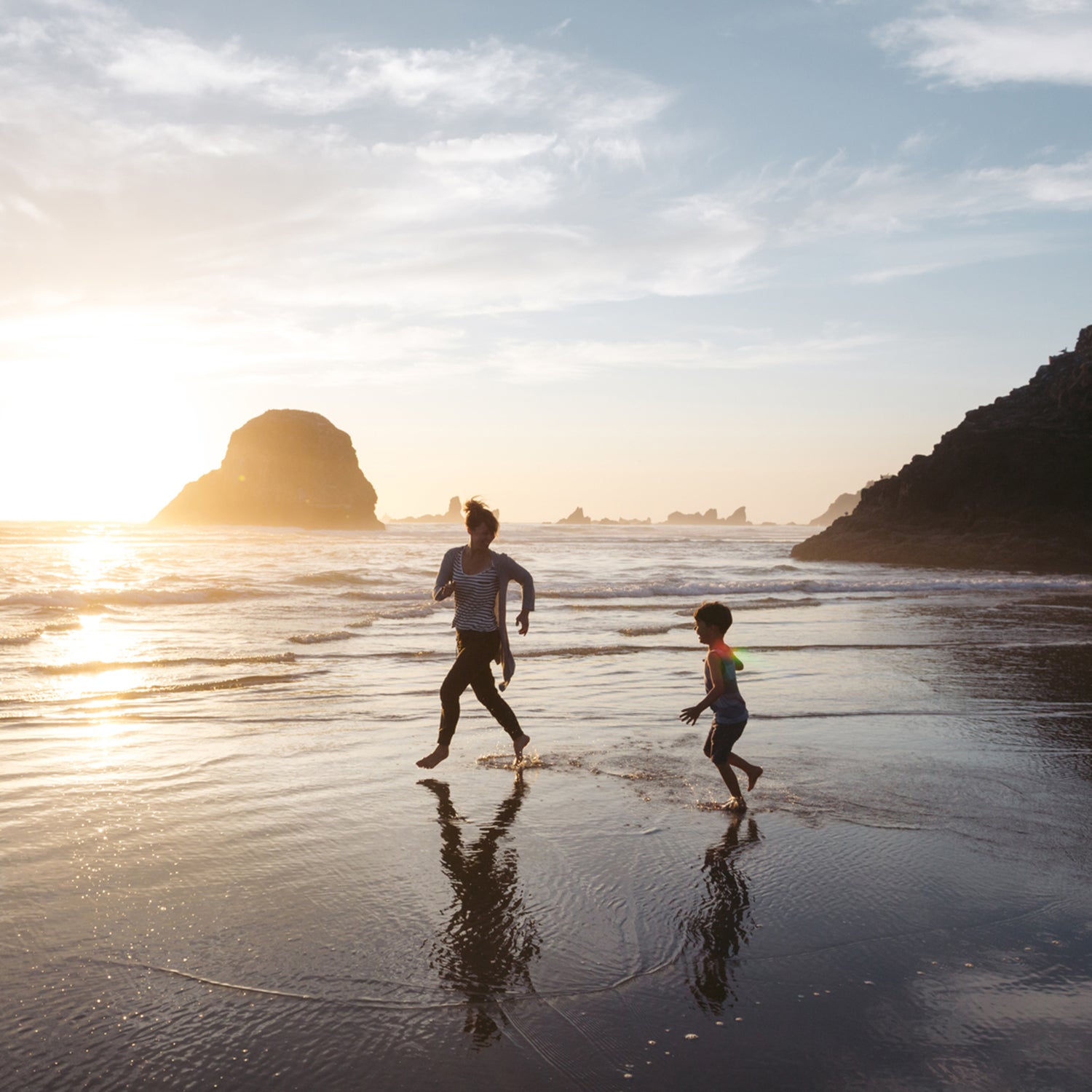When my daughter was a few weeks old, a wildfire broke out near our home in southwest Colorado. The previous winter had been one of the driest on record, and the fire quickly burned out of control. Each night, as smoke crept through the cracks of our home,╠¤I cradled JosephineтАЩs┬аtiny body and worried about her developing lungs. Eventually┬а.
Drought and wildfires are intensifying as the climate warms, and scientists say theyтАЩll only get worse. According to the most recent┬а just under half of the United States is experiencing some degree of drought, including 88 percent of the West, which is seeing record-breaking heat waves and water shortages. The same types of unsustainable human behaviors driving climate change are also polluting the world with plastic, wreaking havoc in our oceans, and pushing roughly a million plant and animal species┬а. A colleague recently told me that her five-year-old was тАЬseriously bereftтАЭ after learning about┬аextinction; she grieved the loss of animals sheтАЩd never seen as acutely as she might grieve the loss of a pet.
Clearly, our children are affected both physically and emotionally by the mess weтАЩve made of our planet. So how do we talk to them about climate change, wildfires, extinction, and other sources of ecological grief? How do we explain these issues in ways that are honest and easy to grasp but donтАЩt leave our children mired in despair?
To get some guidance, I called Emily Fischer, an atmospheric scientist with Colorado State University and cofounder of┬а, a nonpartisan group that provides information to help families understand and combat climate change. Fischer also has two daughters, ages six and nine, and like my family, theyтАЩve been impacted by wildfire: after literally running from a fire on a backpacking trip last year, her daughters are now afraid to be in the backcountry. HereтАЩs how Fischer has helped them process that trauma and understand the realities of our warming world.
Validate Their Feelings
Brushing off childrenтАЩs ecological grief as melodramaticтАФor trying to cheer them up by changing the subjectтАФsends the message that the situation isnтАЩt dire or even that nature isnтАЩt worth saving. Instead, teach them that nature is precious by validating their feelings. When FischerтАЩs older daughter came home from school crying after learning about climate change, Fischer told her, тАЬYes this is real, and yes thatтАЩs an appropriate reaction. This is that big of a deal.тАЭ ItтАЩs totally fair for children to feel sad, scared, or angry about issues that affect their own well-being and that of places and animals they love.
Use ╣·▓·│╘╣╧║┌┴╧ Resources
Children learn best through stories, and there are plenty of age-appropriate books, TV shows, and other resources that can help them grasp environmental issues. For teaching young kids about climate change and extinction, check out┬а,╠¤╠¤┤╟░ї╠¤. The website┬а also maintains a list of recommended books about climate justice and environmental issues for children, organized by age group. And for teensтАФwho may already know more about these topics than you doтАФFischer recommends pointing them toward trusted first hand sources like┬а ┤╟░ї╠¤ so they can see the data for themselves, rather than read someoneтАЩs interpretation of it on social media.
Give Them a Sense of Agency and Hope
One thing Fischer emphasizes when talking to her own kids about climate change is that the problem can be fixed if we take action now. тАЬI remind them that we caused it and we know the solution and the solution is that we stop burning fossil fuels,тАЭ Fischer says. She also explains that while real change requires global shifts in policy and energy production, individual actions also matter. Depending on kidsтАЩ ages, things like walking or biking to school, eating less meat,╠¤expressing themselves through art, sharing information through school projects, or even writing to elected officials are all ways they can help.
Start Early
Most kids will eventually learn about climate change and extinction in school or from the media, so start preparing them beforehand. тАЬEven preschoolers are ready to start learning about responsibility for the planet,тАЭ Fischer says. For them, begin by teaching them to love nature (by spending time outside!), which will inspire them to want to protect it. You can also explain to them that a lot of things people use, like our cars, pollute the air, which is bad. And donтАЩt forget to reassure them that youтАЩre working to make the planet safe and clean.
Educate Yourself
Eventually, your kids are bound to ask questions that you donтАЩt know the answers to, and it’s best to hold off on answering until you can find accurate information. You can also prepare for their inevitably wise queries by reading books like , a collection of essays by women who work on climate change. And give yourself the same grace you give your kidsтАФfind┬аreasons to be hopeful and joyous even in the face of devastating news.


